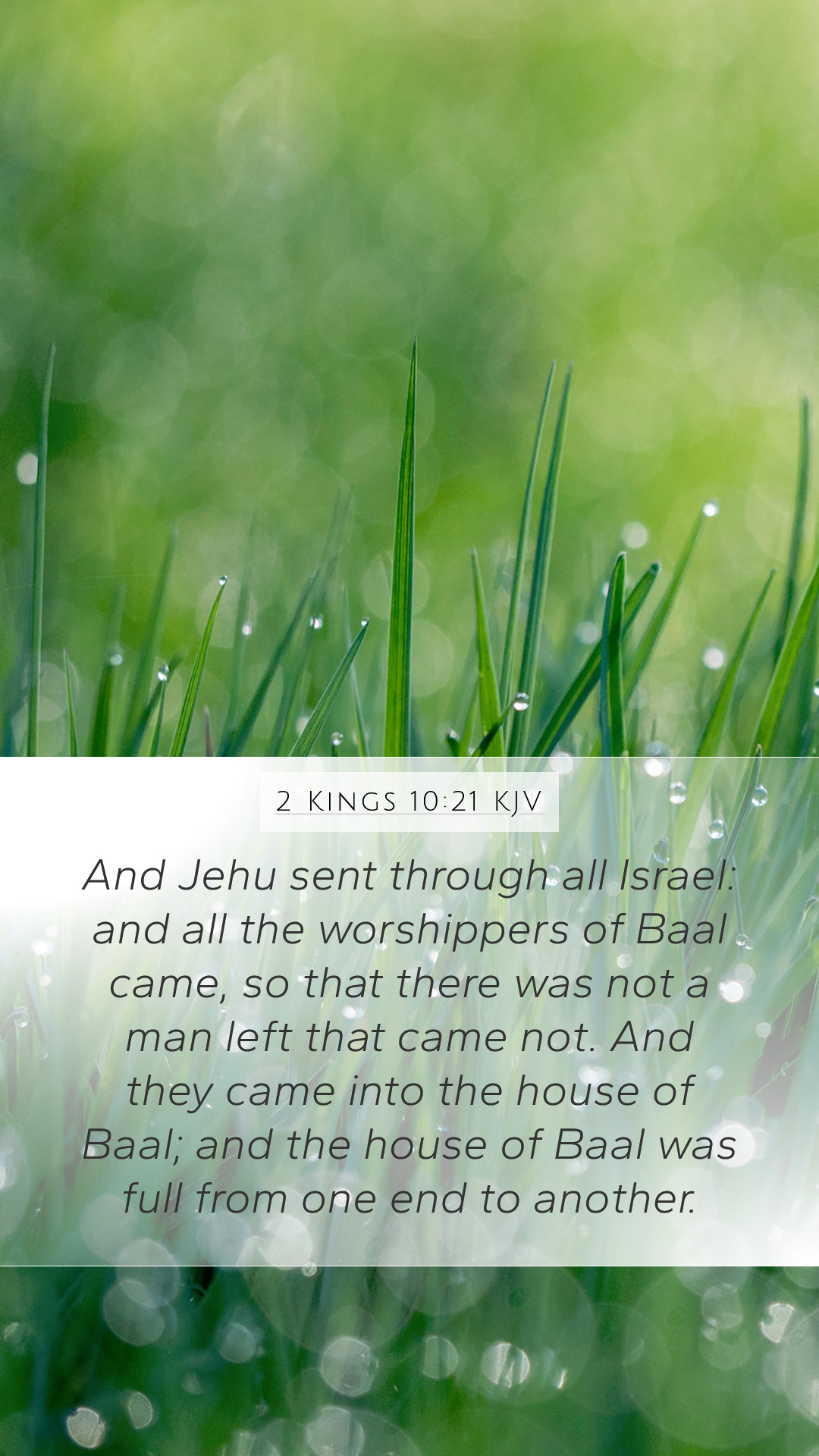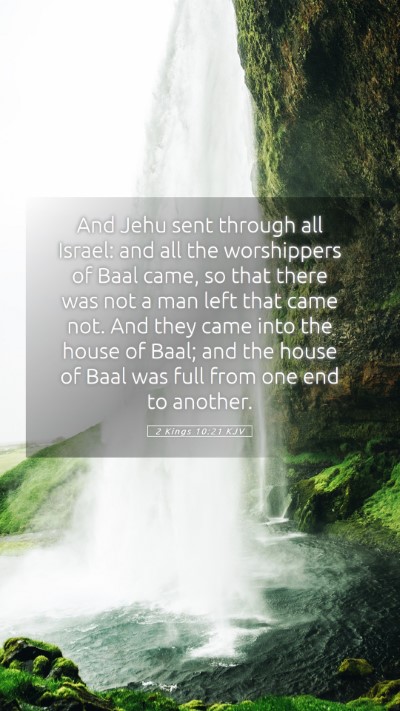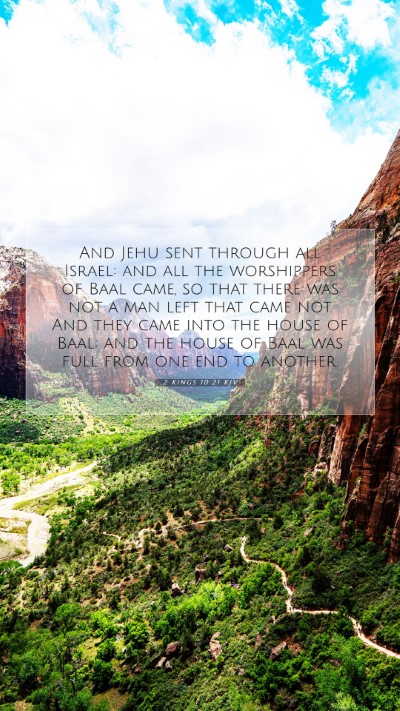Understanding 2 Kings 10:21
Bible Verse: 2 Kings 10:21 - "And Jehu sent through all Israel: and all the worshippers of Baal came, so that there was not a man left that came not. And they came into the house of Baal; and the house of Baal was full from one end to another."
Commentary Overview
This verse marks a pivotal moment in the narrative of Jehu's reign over Israel. It presents the culmination of Jehu's zealous mission to eradicate Baal worship from the kingdom. Let’s break down the key insights from various public domain commentaries:
-
Matthew Henry's Commentary
Henry emphasizes that Jehu's actions were motivated by divine instruction. God commissioned Jehu to destroy the house of Ahab and obliterate idolatry in Israel. The assembly of Baal worshippers indicates their complete faith in despotic rituals and their disregard for the true God. The gathering’s size signifies the overwhelming influence of idolatry among the people, showing the depth of the corruption within Israel.
-
Albert Barnes' Notes
Barnes highlights the significance of the gathering as a fulfillment of prophecy concerning judgment against Baal worship. Jehu’s decree to assemble the worshippers symbolizes not just his authority but also the impending judgment and purging of false worship. The phrase "from one end to another" underscores the extensive participation and commitment of the worshippers, exhibiting how deeply rootile idolatry was entrenched in the culture of Israel.
-
Adam Clarke's Commentary
Clarke provides a historical perspective, noting how Jehu cleverly lured the Baal worshippers under the guise of a great religious celebration. He interprets this moment as demonstrating Jehu’s cunning strategy to confront and remove idolatry by attracting all worshippers to one location. Clarke also suggests that the fulness of the house indicates a temporary triumph of Baal worship which would soon be overtaken by divine judgment.
Key Insights
This verse is rich with implications regarding idolatry, judgment, and divine sovereignty. The organized gathering signifies:
- Unity in Idolatry: Despite being a false religion, the gathering reflects unity among the worshippers of Baal.
- Judgment Day: Jehu’s actions denote a climactic moment of divine retribution against those who led Israel into sin.
- Fulfillment of Prophecy: The verse ties into the prophecies that warned against the consequences of idol worship.
- God's Sovereignty: It illustrates God’s control over events, using Jehu as an instrument of His will to execute judgment.
Bible Study Insights
This specific scripture provides valuable insights for those engaged in:
- Bible study groups: Great for topics on the significance of idolatry and God's judgment.
- Online Bible study: Facilitates discussions on Old Testament narratives concerning kingship and idolatry.
- Bible study resources: Useful for comparative analysis with other prophetic warnings in scripture.
Related Bible Cross References
- 1 Kings 18:20-40 - The confrontation of Elijah with the prophets of Baal.
- 2 Kings 9:6-10 - Jehu's anointing and divine mission against Ahab’s house.
- Hosea 6:10 - A statement about the heinous sin in Israel relating to idolatry.
Conclusion
In summary, 2 Kings 10:21 encapsulates a significant moment in Israel’s history where idolatry reaches a peak and is met with divine judgment through Jehu. This verse not only serves as a historical account but also a spiritual lesson about the dangers of turning away from God and the consequences that follow. For those studying scripture, it illustrates the importance of understanding context, prophecy, and the moral implications found within Biblical narratives.


